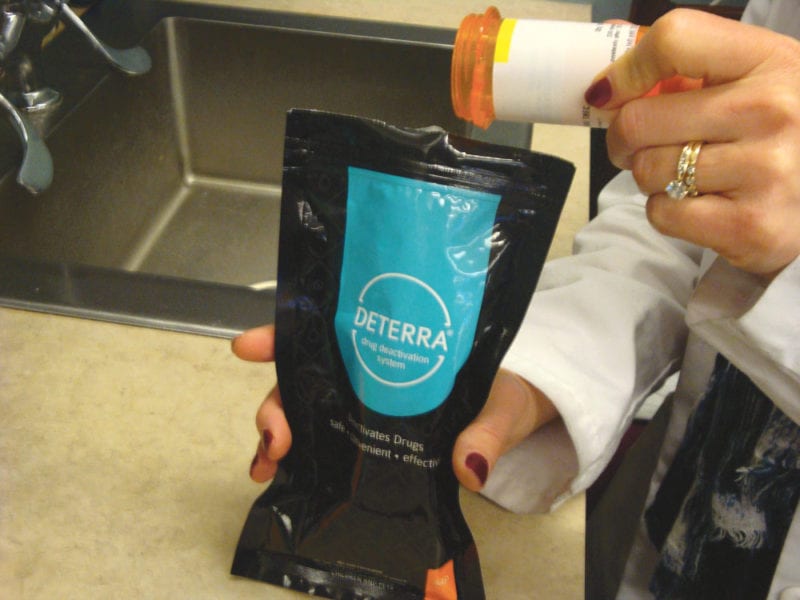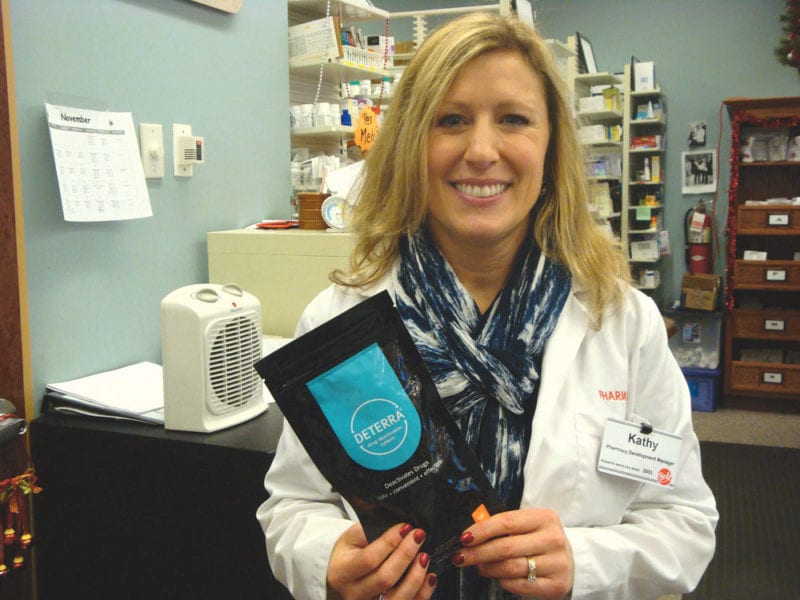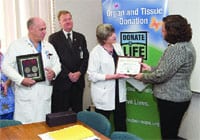An Rx for Drug Disposal – Pouch Offers Safe Option for Getting Rid of Medications
For all the good that medicines provide to people, an age-old problem remains of what to do when they expire or are no longer needed. With stronger medications like opioids contributing to a significant abuse problem, leaving unsecured or forgotten medicines in the house can have serious consequences.
The 2016 National Survey on Drug Use and Health revealed that 6.2 million Americans misused controlled prescription drugs. The study suggested that most of the abused prescription drugs were obtained from family and friends, often from the home medicine cabinet.
One way to get rid of medications is through take-back efforts. The Drug Enforcement Administration (DEA) sponsors the National Drug Take Back Day to give people across America the chance to safely dispose of unwanted, unused, or expired prescription medications. According to DEA, the 2018 Take Back Day held in October involved 5,839 collection sites around the U.S. The weight of the medications collected at all the sites totaled 914,236 pounds, or 457.12 tons. Massachusetts alone accounted for 13.12 tons of the medicines collected.
In addition to take-back days, many communities maintain permanent disposal locations. A search by zip code on the DEA website shows disposal locations in a 10-mile radius of Springfield includimg medical facilities such as Baystate Medical Center, Caring Health Center, and Holyoke Health Center, as well as several CVS and Walgreen locations.
Take-back days and disposal locations were created to control what DEA refers to as a “crucial public-safety and public-health issue” of prescription drugs falling into the wrong hands.
The U.S. Food and Drug Administration website offers guidelines for proper disposal of medicines at home. For some medications, the FDA says flushing medicines down the sink or toilet is acceptable after checking the label or asking a pharmacist. The FDA also recommends mixing in unwanted prescription medications with an “undesirable substance” like coffee grounds, dirt, or cat litter in a sealable container which can then be put into the houshold trash.
Kathy Premo, Pharmacy Development manager for Big Y World Class Markets, said one problem with mixing medications in with coffee grounds and cat litter is that it does not render the drugs inactive. Thus, Big Y has begun offering a safer and more effective way to dispose of unwanted medicines, the Deterra Drug Deactivation System, an easy-to-use pouch for drug disposal.

“The Deterra pouch contains activated carbon, which bonds to the molecules in the drugs, making them inert and unavailable for use,” said Premo.
Verde Technologies, the manufacturer of the Deterra pouch, notes on its website that drug deactivation and disposal is an important part of addressing the opioid crisis by making proper disposal a safe way to “close the loop on the pharmaceutical lifecycle.” The Deterra pouch is endorsed by the DEA Educational Foundation, and the White House Office for National Drug Control Policy has emphasized the importance of at-home deactivation technology in its Drug Control Policy 2.0.
Premo said the directions for use are easy: place unwanted medications in the Deterra pouch, fill halfway with warm water, wait 30 seconds, seal the pouch, then dispose of it in the normal household trash. The pouch has the capacity to deactivate up to 45 pills or six ounces of liquid and even works on time-release patches.
“Cancer patients and others who use fentanyl patches for pain often ask how to dispose of them,” Premo noted. “The pouch will accommodate up to six patches.”
The Deterra pouch is available at Big Y Pharmacy and Wellness Centers, along with all Big Y Supermarkets.
“Take-back days and drop-off locations are great options, but some people feel uncomfortable bringing a bag of medications to a disposal site,” she told HCN. “The Deterra pouch is another option that’s private and very easy to use.”
While anytime is a good time to get rid of unwanted medicines, Premo said particular attention should be paid to the holiday season.
“The holidays are a common time to host family and friends at home,” she explained. “It’s important to keep medications secure from curious children or others who may be actively seeking out medications that can be abused.”
In addition, because the Deterra pouch renders the drugs inert, Premo said it is a much better environmental option than flushing medicines down the drain, an option she noted can affect the water supply, wildlife, and eventually people.
The pouch sells for $3.99, a price she says is below Big Y’s cost.
“With the opioid epidemic happening across the country,” she added, “we wanted to do our part in Massachusetts and Connecticut to give our customers another safe option for getting rid of medications from their cabinet.”




Comments are closed.